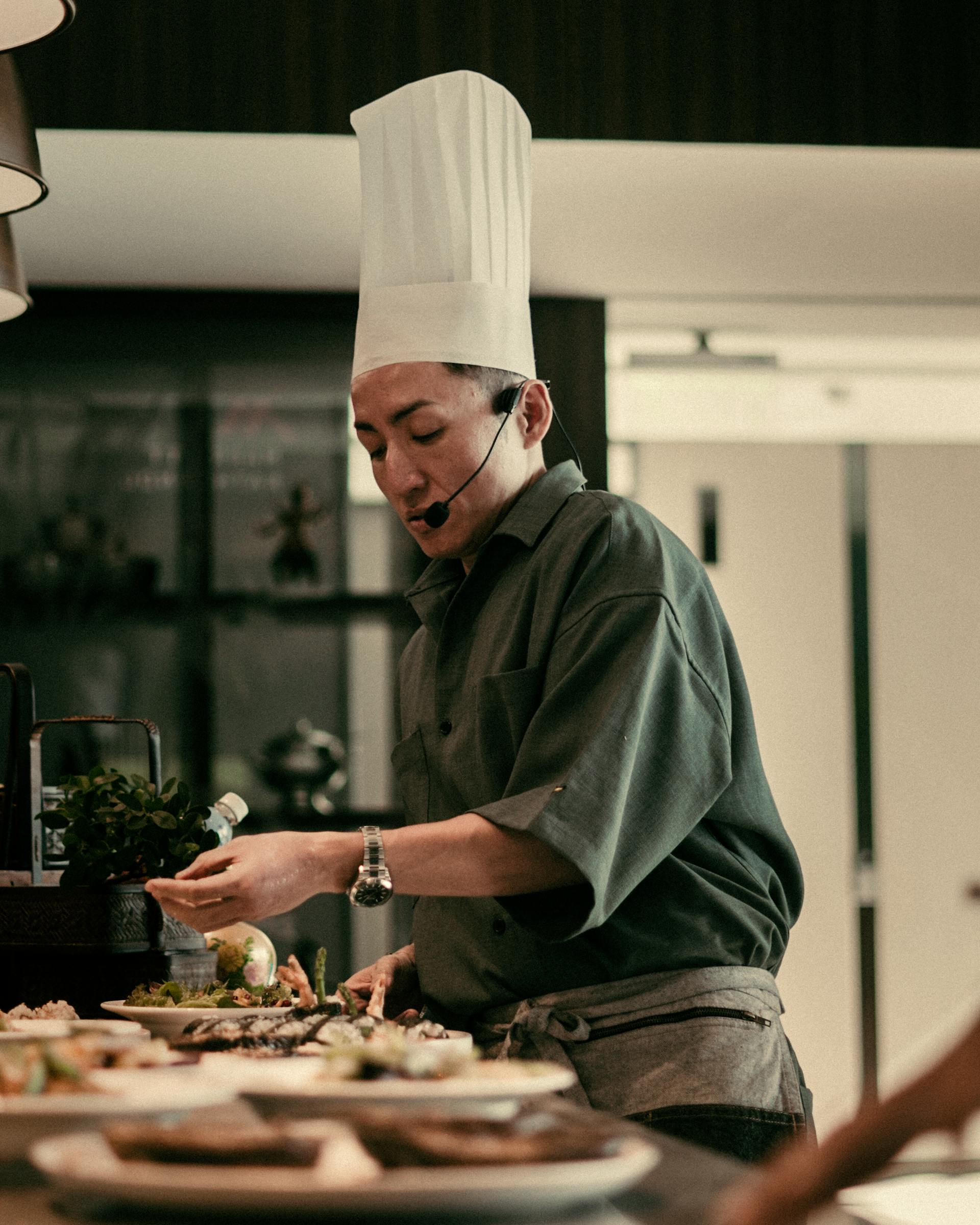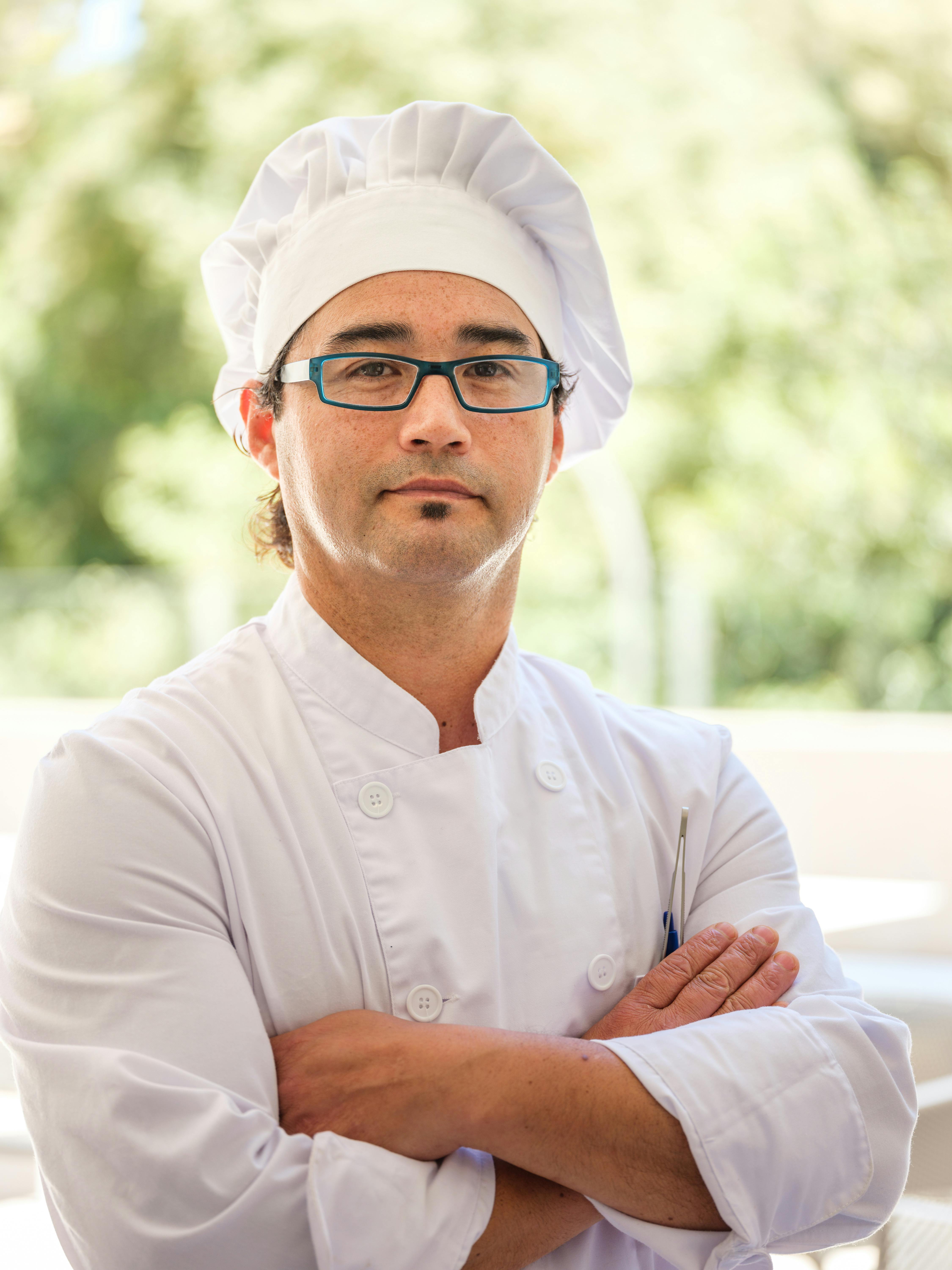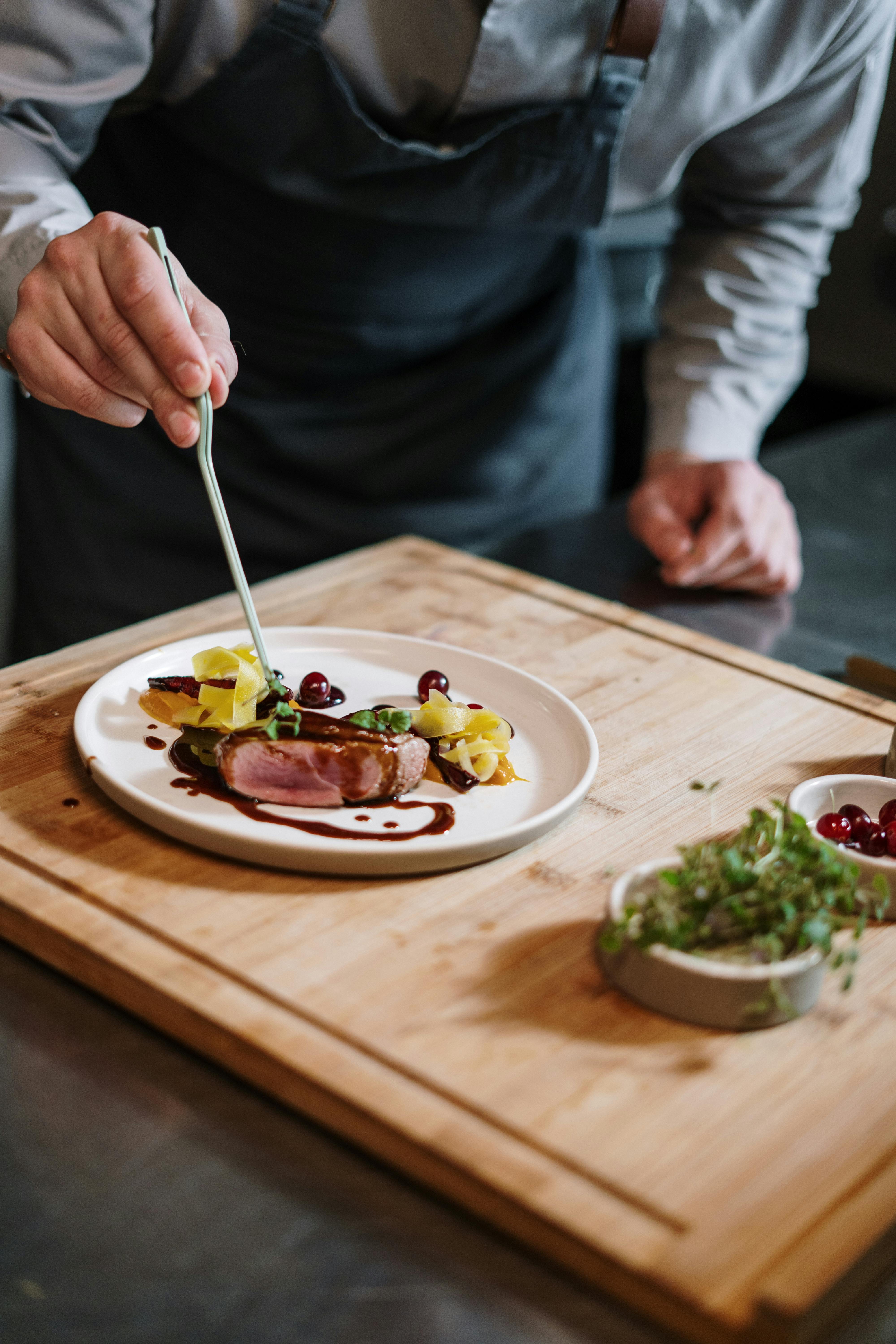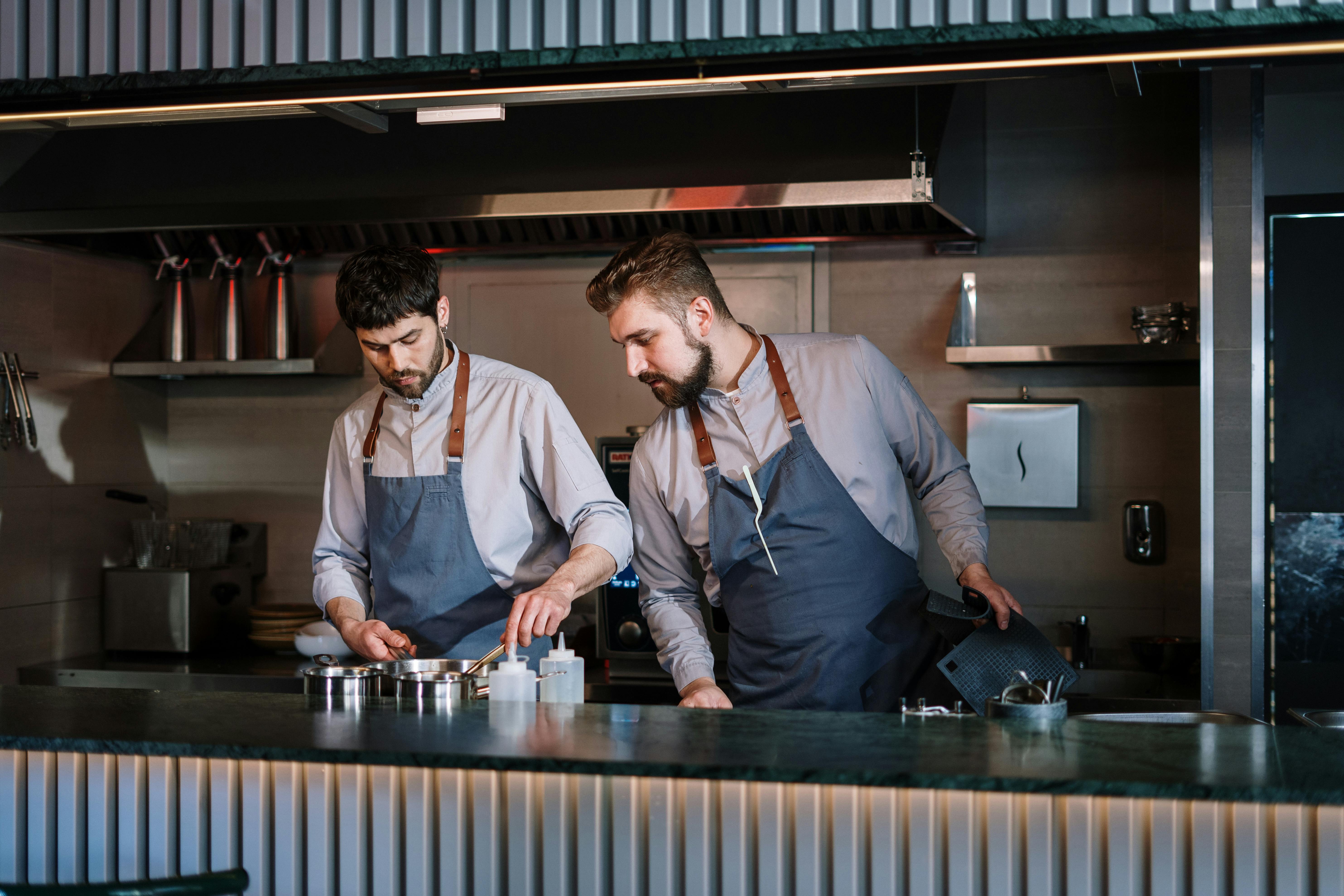Let’s be real, running a kitchen doesn’t just involve cooking. It’s about leading, planning, managing chaos, and still making sure every plate looks and tastes amazing. That’s what a head chef does.
The head chef is the one calling the shots behind the scenes. From designing the menu and setting standards to mentoring the team and making sure things run like clockwork during service, they wear a lot of hats (and yes, one of them is literally a tall white one). If you’ve ever wondered what the job really involves or how to become one, this guide breaks it all down.
1. Who is a Head Chef?
A head chef, also known as an executive chef or chef de cuisine, is the top culinary professional in a commercial kitchen. They’re responsible for overseeing the entire kitchen operation, from recipe development to staff supervision and budgeting.
Historical Evolution:
In classical French kitchens, the role of "chef de cuisine" was part of the brigade system developed by Auguste Escoffier. This hierarchical structure allowed for specialization and efficiency, a model still used in modern kitchens.
People Also Ask:
- What is a head chef called? → Executive Chef or Chef de Cuisine.
- Is a head chef a manager? → Yes, a head chef manages people, operations, and culinary strategy.
2. Roles and Responsibilities

A strong head chef does more than cook. They:
Key Duties:
- Plan and design menus
- Create and test recipes
- Ensure food safety and hygiene standards
- Supervise kitchen staff and delegate tasks
- Train new chefs and apprentices
- Manage kitchen inventory and supplier relationships
- Control food costs and maintain budgets
- Innovate with seasonal and trending ingredients
3. Essential Skills and Qualities
To lead a kitchen successfully, a head chef needs more than knife skills.
Must-Have Skills:
- Leadership & team management
- Creativity in menu design
- Culinary techniques and product knowledge
- Time and stress management
- Conflict resolution
- Clear communication with staff and front-of-house
4. Path to Becoming a Head Chef

No one starts at the top. Becoming a head chef requires training, experience, and dedication.
Educational Path:
- Culinary diploma or degree from a recognized school
- Specialized certifications in safety, hygiene, or pastry (optional)
Career Progression:
- Commis Chef
- Chef de Partie
- Sous Chef
- Head Chef
Apprenticeships and on-the-job learning are crucial at every stage.
5. Daily Tasks and Workflow
The head chef’s day is a careful choreography of planning, supervising, and executing.
What a Typical Day Looks Like:
- Inspecting ingredients and prepping stations
- Conducting team meetings
- Coordinating service during peak hours
- Managing supplier orders and inventory
- Tasting and adjusting recipes
- Ensuring health and safety compliance
6. Challenges Faced by Head Chefs

Being in charge comes with its own pressures.
Common Challenges:
- Balancing creativity with cost-efficiency
- Managing high-pressure kitchen dynamics
- Adapting to dietary trends and guest expectations
- Training new staff without slowing down service
- Handling customer complaints and reviews
7. Rewards of Being a Head Chef
Despite the heat, the role comes with major perks:
Why It’s Worth It:
- Creative control in the kitchen
- Industry recognition
- Opportunities for entrepreneurship (restaurant ownership, consulting)
- Mentoring future chefs
- Personal satisfaction from seeing your vision on a plate
FAQs about Head Chefs
1: What qualifications are needed to become a head chef?
A culinary diploma or degree is highly recommended, along with several years of hands-on kitchen experience.
2: How many years does it take to become a head chef?
Typically, 7–10 years of progressive experience in professional kitchens.
3: Is being a head chef physically demanding?
Yes. Long hours, standing, lifting, and working under pressure are all part of the job.
4: Who ranks directly under the head chef?
The sous chef is second in command, managing day-to-day operations and assisting with leadership.
5: How do head chefs handle special dietary requests?
By understanding allergies, restrictions, and preferences—and training their team to adapt recipes safely.
6: Do head chefs still cook?
Absolutely. While they delegate, many head chefs stay hands-on during key service periods.
Ready to lead your own kitchen? At ICCA Dubai, our Professional Diploma Programs in Cookery and Patisserie are designed to turn aspiring chefs into confident professionals. Learn from industry experts, train in state-of-the-art kitchens, and gain real-world experience that puts you on the path to becoming a head chef.




.jpg)